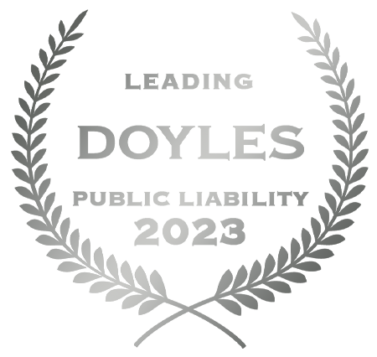
NSW Police are eliminating TPD lump sum entitlements – what you need to know.
Law Partners has a long history serving the interests of NSW police officers and emergency service workers. We’ve helped many police officers with their claims for workers compensation payments as well as for total and permanent disability (TPD) lump sum payouts for serious, career-ending injuries, including PTSD, anxiety and other mental health conditions.
Which is why we’re disappointed to see the recent announcement that NSW Police along with the NSW State Government and the NSW Police Association have decided to eliminate Police Blue Ribbon TPD insurance for all NSW police officers, and replace it with another scheme without TPD insurance – effective from October 1, 2024.

This was one of the only insurance policies that could cover NSW police officers for a TPD lump sum payout claim.
As our Principal, Chantille Khoury highlights, “With this change, we are concerned for the welfare of NSW Police Officers. The announcement came with little warning, and we’re not certain enough consultation with relevant stakeholders was undertaken.”
“It’s a case where private insurers are effectively leaving our frontline workers powerless in situations where mental health conditions can render them vulnerable and exposed. The impact could well be that we see a greater number of police officers with psychological injuries continuing on with their roles in the force, because they can’t afford not to. This clearly impacts both the individual and the community at large.”
Below, we explain everything you need to know about the upcoming changes.
Call 13 15 15 or chat to us now for free advice
Chat nowFind out how much you can claim.
Get startedWhat exactly is happening?
The Police Association of NSW has announced that starting from October 1, 2024, the Police Blue Ribbon Insurance (PBRI) will be replaced by the Enhanced Police Support Scheme (EPSS).
Unlike the PBRI, which was run by a third-party insurer (TAL) and managed through a super fund (Aware), the new EPSS will be “self-managed.” This means the NSW Police Force will handle everything directly.
Who’s affected by this change?
This change only impacts current NSW Police Force members. It won’t affect other Emergency Services employees or volunteer organisation members.
What does this mean for injured NSWPF members and their access to TPD benefits?
The TAL PBRI TPD insurance will end on October 1, 2024. With the new EPSS, injured NSWPF members won’t have access to TPD entitlements unless they’re already off work before October 1, 2024.
If you’re a NSWPF member who got injured and stopped working before October 1, 2024, you’ll still be covered for PBRI TPD, even if you file the claim after this date.
However, if you get injured after October 1, 2024, and then stop working due to medical reasons, you won’t have TPD insurance under the new EPSS scheme.
TAL will review claims for members injured before October 1, 2024, but still working in any capacity (including light duties or reduced hours) after this date on a case-by-case basis. Most of these claims will likely be declined. If you continue working in any capacity after the insurance ends on October 1, 2024, TAL will probably decide you don’t meet the policy definition of “totally incapacitated” as of the insurance end date.
What’s the alternative to TPD under EPSS?
Instead of a TPD lump sum, the EPSS will offer an extended period of Income Protection (IP) payments. Currently, IP is capped at 7 years at 75% of your salary. Under the new scheme, if you’re assessed as permanently incapacitated or catastrophically injured at the end of this 7-year period, IP payments will continue for another 3 years at the same rate (75% of your salary).
Am I better or worse off under the new scheme?
To see if this is a good deal for you, compare your existing TPD policy amount with what your current salary (capped at 75%) over 3 years would be.
Who decides if a member is permanently incapacitated under EPSS?
To get the extra 3 years of IP payments under EPSS, you’ll need to pass an “exceptional payment test.” This means convincing an independent panel that you’re medically incapable of returning to any duty within NSWPF. The panel includes:
- A nominee from NSWPF.
- A nominee from the Police Association of NSW.
- A nominee from the Police Minister.
Does EPSS affect current NSWPF workers’ compensation entitlements?
No, there are no changes to workers’ compensation entitlements and claims.
For more information about your legal entitlements as a NSW Police Officer, call Law Partners on 13 15 15.
Related articles
Do I have a case?
Our senior lawyers will assess your case for free.










